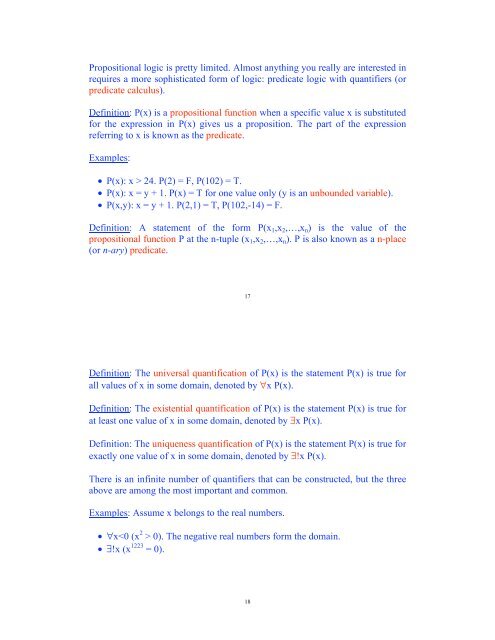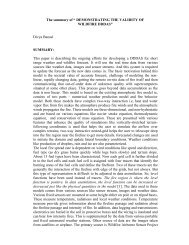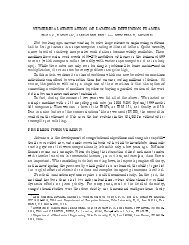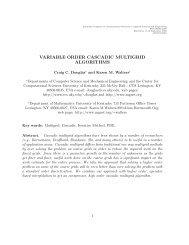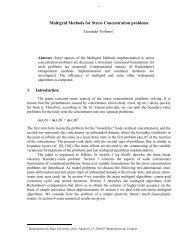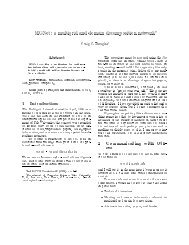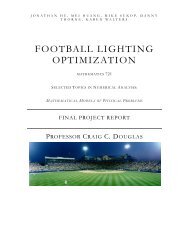Discrete Mathematics University of Kentucky CS 275 Spring ... - MGNet
Discrete Mathematics University of Kentucky CS 275 Spring ... - MGNet
Discrete Mathematics University of Kentucky CS 275 Spring ... - MGNet
You also want an ePaper? Increase the reach of your titles
YUMPU automatically turns print PDFs into web optimized ePapers that Google loves.
Propositional logic is pretty limited. Almost anything you really are interested in<br />
requires a more sophisticated form <strong>of</strong> logic: predicate logic with quantifiers (or<br />
predicate calculus).<br />
Definition: P(x) is a propositional function when a specific value x is substituted<br />
for the expression in P(x) gives us a proposition. The part <strong>of</strong> the expression<br />
referring to x is known as the predicate.<br />
Examples:<br />
• P(x): x > 24. P(2) = F, P(102) = T.<br />
• P(x): x = y + 1. P(x) = T for one value only (y is an unbounded variable).<br />
• P(x,y): x = y + 1. P(2,1) = T, P(102,-14) = F.<br />
Definition: A statement <strong>of</strong> the form P(x 1 ,x 2 ,…,x n ) is the value <strong>of</strong> the<br />
propositional function P at the n-tuple (x 1 ,x 2 ,…,x n ). P is also known as a n-place<br />
(or n-ary) predicate.<br />
17<br />
Definition: The universal quantification <strong>of</strong> P(x) is the statement P(x) is true for<br />
all values <strong>of</strong> x in some domain, denoted by (x P(x).<br />
Definition: The existential quantification <strong>of</strong> P(x) is the statement P(x) is true for<br />
at least one value <strong>of</strong> x in some domain, denoted by )x P(x).<br />
Definition: The uniqueness quantification <strong>of</strong> P(x) is the statement P(x) is true for<br />
exactly one value <strong>of</strong> x in some domain, denoted by )!x P(x).<br />
There is an infinite number <strong>of</strong> quantifiers that can be constructed, but the three<br />
above are among the most important and common.<br />
Examples: Assume x belongs to the real numbers.<br />
• (x 0). The negative real numbers form the domain.<br />
• )!x (x 1223 = 0).<br />
18


